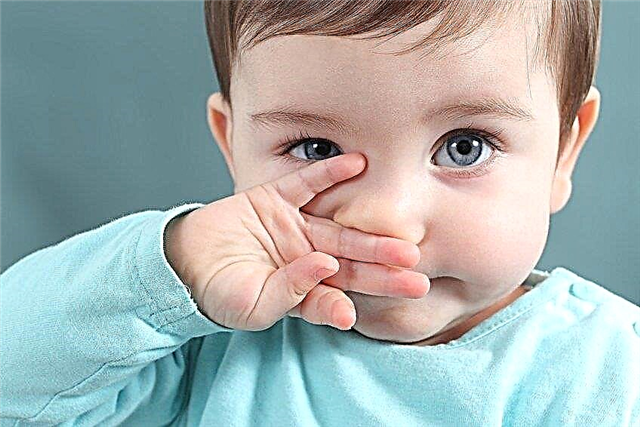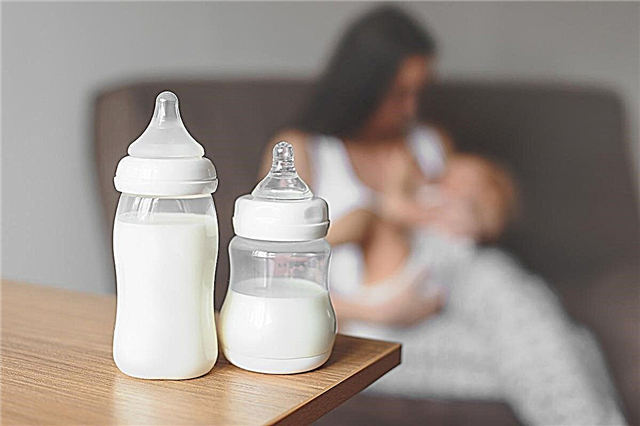
Recently, I have formed a strong feeling that our entire society, young and old, is hopelessly chronically ill. The queues at pharmacies, in any case, sometimes there are more queues at the cinema box office.
Almost half of the people standing in them, according to my observations, are young parents or grandmothers, grandfathers who have come for a sedative for their little child or grandson. Well, what do you want: a hectic and hectic time creates a hectic generation.
Both moms and dads, in search of their own peace, rush to find an effective medication that will magically change their nervous, hysterical, capricious child into a sweet and quiet baby. This does not happen, my dear parents.

The increased nervousness of our children is not our problem, it is our responsibility. I agree that a screaming, hysterical and stomping child, especially in a public place - a park, store or cafe - is a stress factor not only for his exhausted parents, but for everyone around him. But to feed a healthy, but just a somewhat restless baby with sedative pills, you must admit, is somehow cowardly and unsightly, and in some places just criminal.
Is it worth replenishing the accounts of the already not poor tycoons from the pharmaceutical business, buying at exorbitant prices for sedatives or nootropic advertised drugs? Let's try to figure out when children really need sedatives, and when they can do without them. And do traditional medicines have decent alternative alternatives?

Sedatives in the understanding of modern official medicine are drugs that normalize and balance the nervous processes of excitation and inhibition in the cerebral cortex. Often this balance is fragile, and braking "outweighs". This is mainly the case when it comes to the use of synthetic sedatives.
In addition to them, sedatives are of other origin - homeopathic and herbal. Sedatives are usually prescribed by a doctor. For all other drugs, it is also advisable to ask the doctor's advice in order to avoid negative consequences.

In relation to homeopathic remedies in society, discussions do not subside. Someone considers them a "dummy" with a placebo effect, someone is sure that small doses of the substances used in them are the most suitable treatment for children. In any case, parents, according to reviews, are more inclined towards homeopathy. As for the doctors, there are as many opinions here as there are doctors themselves - each specialist has his own view of the problem of restless children.
Indications
Parents need to start worrying and make an appointment with a doctor to get a prescription for sedatives in the following cases:
- If the child is hyperactive and excitable.
- If he has disturbed night sleep (1-2 awakenings per night are not considered a deviation).
- If the child "rolls" strong, frequent and rather prolonged tantrums.
- If the baby behaves extremely restlessly 80% of the waking time (runs, screams, talks loudly, does not know how to listen and remember, concentrate, and almost always actively gesticulates).
- If the child is withdrawn, anxious, depressed and depressed.
- If a teenager has a markedly impaired motivation for learning, he has problems with memory, there is asocial behavior, unmotivated aggression, irritability,
- If a child pees at night (after 3 years), suffers from nightmares, lags far behind in development from peers, stutters, suffers from tics.
- If the baby can hardly tolerate new conditions for himself, he began to attend kindergarten or school and these changes in his life are very painful.

There are situations in which, of course, you cannot do without anti-anxiety drugs. But let's leave the right to draw conclusions to specialists, it is unacceptable to diagnose a child on their own. After all, a child can be capricious and hysterical because he has the same parents, because of the peculiarities of his own temperament or because of pedagogical omissions - in other words, he is very poorly brought up. In these cases, medications will only aggravate the problem and will certainly not be beneficial.

If the doctor has advised your baby to drink a sedative, do not argue and do not disregard the opinion of a specialist. Since "advanced" forms of neurological diseases are more difficult to treat with age.
Soothing drugs for children are available in different dosage forms:
- Pills;
- Ampoules for intramuscular and intravenous administration;
- Capsules;
- Syrup;
- Drops;
- Potions;
- Herbal preparations;
- Suspensions and powders for preparing suspensions.
Syrups, potions and suspensions are suitable for babies and babies under one year old - they are easy to drink. From 2-3 years old, children can be given soothing teas, from 6 years old, children can usually take a pill without problems. But medicines in the form of capsules are intended for children over 12 years old.
Requirements for sedatives for children:
- No toxicity,
- The drug must not cause physical (drug) dependence,
- The list of contraindications should not be on three sheets with attachments.
Watch the video in which a psychotherapist of the highest category, candidate of medical sciences Galushchak Alexander Vasilyevich talks in detail about one of the children's sedatives Phenibut:
Overview of drugs
The most common sedatives for children today are usually plant-based. Doctors try to prescribe synthetic drugs in extreme cases with rather serious diagnoses of a neurological and psychiatric profile. But herbal and homeopathic remedies, including nootropics - please. Let's take a look at the most popular baby sedatives that you can find in any pharmacy:
Important: Any of the listed remedies, although most of them are sold in pharmacies without a prescription, must be agreed with your healthcare professional.
Samples for allergic reactions are not included in the standard examinations of a child in a polyclinic, and you cannot reliably know which of the herbal components of the drug can cause allergies in your baby.
It happens that even a harmless pharmaceutical chamomile causes a rash, allergic rhinitis and swelling of soft tissues. It is better not to take risks and consult a pediatrician. He will also prescribe you a dosage based on the age, weight of the child and the general characteristics of his health.
Alternative methods
So now we know which medications can help calm the baby. Are there any alternative methods? Of course, there are quite a few of them. Some you may remember from your own childhood. Some have become widespread relatively recently. What can help calm your child?
- Herbal tea. You can prepare the sedative collection yourself, or you can purchase it at the pharmacy. Anxiety and nervousness are well relieved by teas based on chamomile, lavender, lemon balm, mint, motherwort.
- Soothing baths. They can be done to children from birth. The herbs and herbal decoctions that you add to the water may be different (most often it is motherwort, pine needles, chamomile, St. John's wort, lemon balm), but you must carry out the procedures strictly according to the schedule. Soothing therapeutic baths should be repeated after 2-3 days for 1-2 months.
- Soothing massage. Massage for hyperactive children should include a set of relaxation exercises. These are stroking, patting, pinching, circular movements with your hands. The use of a soothing ointment or cream is encouraged (these are baby creams with chamomile, lemon balm). Contraindicated - sharp, deep and tonic pressing, painful effects during a massage session. The best time to do a soothing massage is shortly before your evening swim before bed.

- Music therapy. This method is based on the positive effect of sounds on the child's psyche. If the baby is restless, often throws tantrums, is capricious, give him several “musical breaks” a day. Don't make him sit and listen, let the music play in the background. Let Bach's preludes and fugues, Mozart's compositions, Beethoven's symphonies, works by Grieg, Mussorgsky, Chopin appear in your playlist. The main thing is to choose slow and melodic compositions, since fast and energetic ones have the opposite effect (brisk waving of arms and legs without a hint of calming my son causes Vivaldi's music, for example). Scientists have found that only mothers' lullabies have the most beneficial effect on children, so sing songs to your child more often. In second place is classical music, and children's songs from cartoons took only the third position.
- Aromatherapy... Breathing in heated vapors of essential oils (aroma oils) is a great way to relieve anxiety and tension in a child. But here you need to remember that newborns and children under 3 years old can be harmful, because at this age babies are especially sensitive to strong odors. They may develop allergies, respiratory diseases. Therefore, it is better to install aroma candles and aroma lamps for a short time in the rooms of children 4-5 years old and older.
This video contains music that has received a large number of grateful responses from parents. They claim that children quickly calm down under it and fall asleep in a sound and restful sleep.
- Play therapy... Social and child psychologists are always on hand to help you create games that will relieve tension in your child. The healing received during the game is most favorable for the growing man. Most often, calm games that require concentration are used for hyperexcitable children. For children with depression and neurosis, role-playing games are better suited to help them harmoniously adapt to the world around them.
- Art therapy... Treatment with art and creativity. Modeling, drawing, creating appliques are very helpful for easily excitable children. Any creative process that stimulates fine motor skills has a positive effect on brain function. If no one in the family knows how to draw and sculpt, it doesn't matter. Now there are so-called soothing coloring pages. They can be bought or downloaded for a child on the Internet. They differ from other types of coloring by pictures with an abundance of small details, by analogy with mandalas for adults - a sacred practice in Buddhism and Hinduism. Do not assume that a nervous and restless child will immediately take up soothing creativity with enthusiasm. But if every day you draw or do a little something, then, as they say, patience and work will grind everything.

- Fairytale therapy... You have probably already heard something about the incredible healing and educational effect of fairy tales on a child. Believe me, these rumors are completely justified. Children love to listen to fairy tales, bedtime stories are especially beneficial, and tales in which the heroes were able to overcome their excitement are perfect for restless children. Tell the kids in more detail how the characters did it, how they felt. “Ivan Tsarevich went to look for his arrow. He was very worried whether he would be able to find her, and was worried about how he would return home later, he even had sweaty hands and a headache. ” the power of age is not always able to express in words.
- Vitamins... Do not underestimate the benefits of vitamins for correcting restless behavior in a child. Some nervous disorders arise precisely from a lack of vitamins and minerals. Magnesium and calcium, vitamins of group B, vitamins D, C, E are such "important" for the child's psyche. Therefore, choose a vitamin complex for your child by age, and make sure that his diet is also saturated with foods containing a sufficient amount of vitamins.
- Folk "secrets". There are folk secrets and little tricks to deal with stress and nervousness in a child. My great-grandmother, who raised 8 children, always read them prayers before going to bed. And also washed with spring water. She believed that the healing properties of spring water and prayers helped to remove "any bad attack" from the child.

We started our conversation about children's sedatives with a review of medications, but in practice they should be the last resort to resort to. Any pill is a compulsory necessity, not a voluntary choice. If your child is healthy, the pediatrician and neurologist do not find serious reasons for concern, accept the baby as he is, and use alternative methods. Moreover, in a situation with alternatives, you can always combine them or practice all at once.



